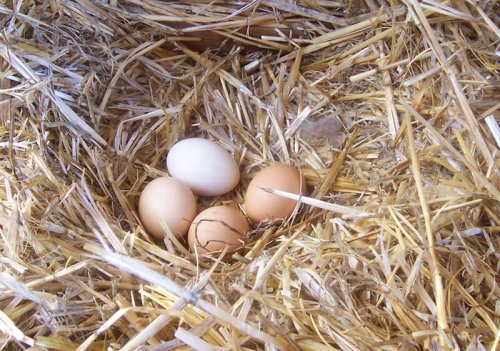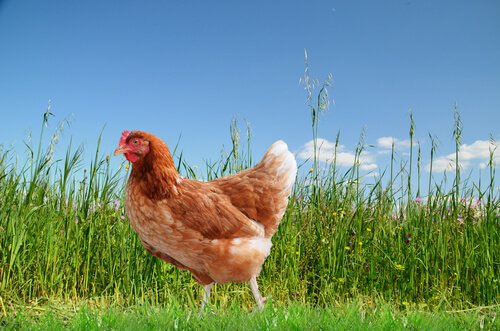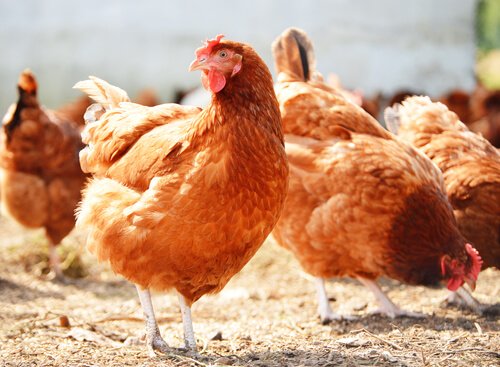Improve Your Hen's Egg Quality
3 minutes

Egg quality is important for a farmer’s income and the consumer’s health, and it also shows if a laying hen has been properly fed.
Egg Quality: Feeding tips for laying hens
You can analyze the quality of an egg by observing the yolk, albumen and shell.

Yoke quality
Yolk quality is revealed by its consistency, color and composition. The yolk’s color varies from pale yellow to intense orange. Its tone depends on the assimilation of lipid pigments that make up these birds‘ diet.
Many producers use synthetic substances or specific food in order to get the consumer’s color preference. This depends on each culture, but usually most people associate a more intense color to “free range” eggs.
The synthetic combination is usually composed of zeaxanthin, lutein and capsanthin in different proportions. You can complement these supplements by adding corn or alfalfa into a hen’s diet.
The yolk’s consistency depends mainly on the permeability of the vitelline membrane. A hen’s diet doesn’t normally influence permeability. Instead, the following factors are the ones that actually determine it: storage conditions, age of laying hens and time from laying to consumption.
Yoke Spots
One of the most important aspects of the yolk’s composition is the presence of small hemorrhages. These blood stains are formed during ovulation and appear on the yolk’s surface. When oxidized, they look brownish or white.
Genetic factors, the animal’s age, and stress during the hen’s upbringing cause this phenomenon. Currently, people believe that the toxic substances in commercial food make these stains more common.
Egg white quality
The quality of the egg white is determined mainly by its consistency. The most important factors are the egg’s freshness and the laying hen’s age. Plus, good commercial feed plays an important role. It must contain the appropriate levels and sources of protein.
Meat or bean flour are protein sources that favor good egg white consistency. However, rapeseed and sunflower flours have a negative effect on it. In addition, specific amino acids, such as lysine, are good for the white’s consistency.
However, excess magnesium and other metals in the diet may decrease the egg quality. The same is true for vanadium contamination, which you can counteract with controlled doses of ascorbic acid.
Egg shell quality
When it comes to the shell, the only thing a hen’s diet modifies is its thickness. Almost 95% of the egg shell is composed of calcium carbonate. Although most of it comes from the animal’s bones, you can also provide more of this substance in the hen’s diet.
That’s why you can administer an extra dose of calcium in the hen feed. You should use calcium with inorganic phosphorus in order to improve the animal’s bone health as well. However, note that a laying hen’s diet must contain vitamin D3. It’s indispensable for bone calcification, and to improve the shell’s density.

Egg quality: management care and preventive medicine
First of all, remember that preventive medicine allows you to keep the animal healthy and improve its productivity. Therefore, you must vaccinate the hen periodically against posture-drop syndrome, infectious bronchitis, and Newcastle disease.
When it comes to animal management, be sure to minimize the hen ‘s stress when it’s being raised. Therefore, you should avoid sudden changes in habitat and lighting, and overpopulation in its environment. Also, you must collect eggs on a regular schedule and at a consistent time.
Egg quality is also determined by their effects on the consumer’s health. Currently, people want eggs with excellent nutritional qualities: high levels of Omega 3, vitamins and folic acid.
